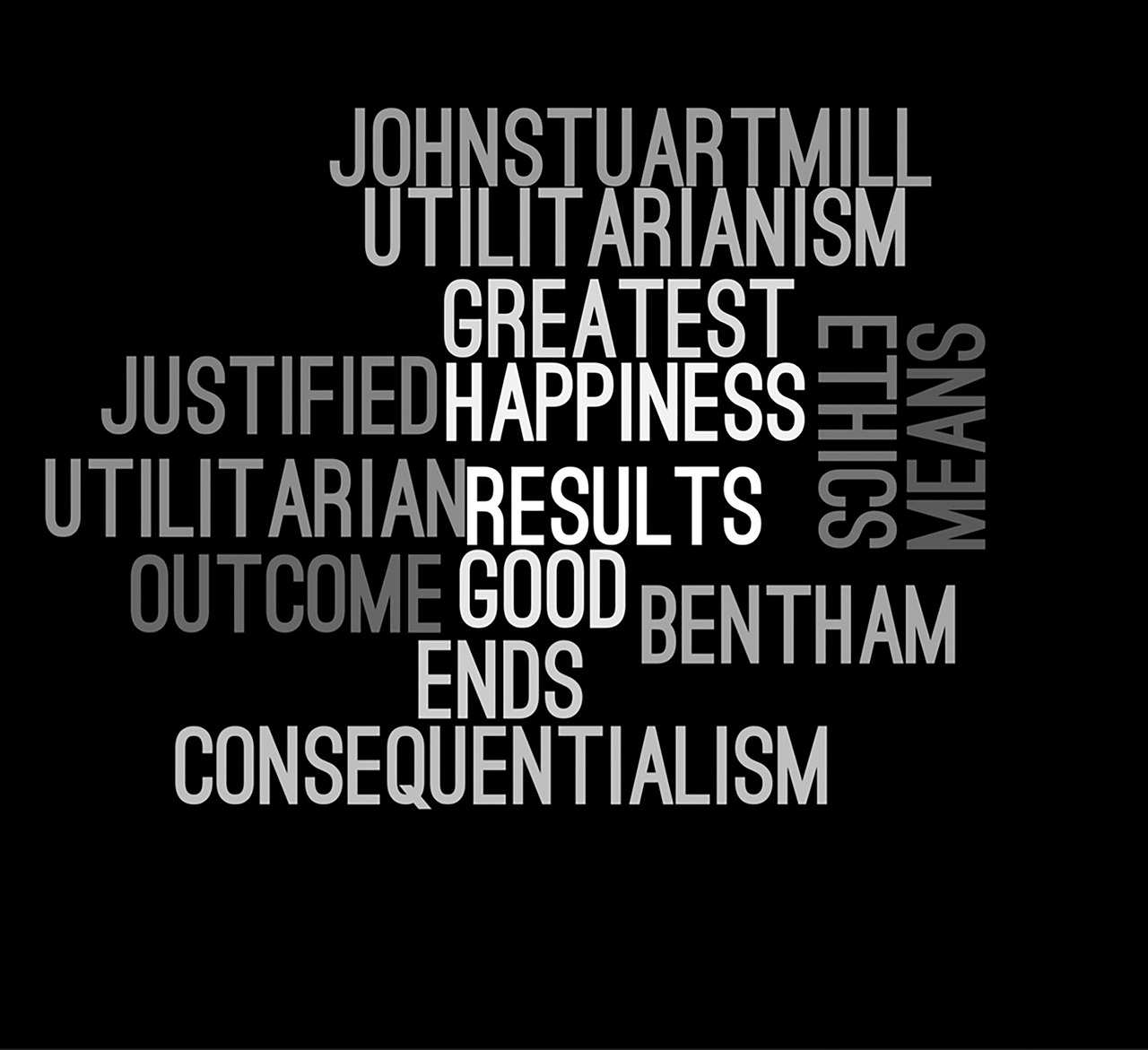Reflections on Utilitarian Philosophy in the Modern Political Sphere
In a world where political decisions can make or break the fabric of society, the relevance of utilitarian philosophy has never been more pronounced. This ethical framework, which emphasizes the greatest good for the greatest number, serves as a compass for policymakers navigating the complex waters of contemporary governance. But what does this really mean for us today? As we dive deeper into the implications of utilitarianism, we’ll explore its roots, its application in policy-making, and the ethical dilemmas it presents. Ultimately, we are left to ponder: can a philosophy that prioritizes collective happiness truly account for the diverse needs of individuals?
Utilitarianism traces its origins back to the late 18th and early 19th centuries, championed by thinkers like Jeremy Bentham and John Stuart Mill. At its core, utilitarianism is built on the principle of maximizing happiness and reducing suffering. Bentham introduced the idea of the "greatest happiness principle," which posits that actions are right if they promote happiness and wrong if they produce the opposite. Mill expanded on this by introducing qualitative distinctions in pleasures, arguing that intellectual and moral pleasures are superior to mere physical ones. This philosophical foundation serves as a crucial lens through which we can examine modern political thought and its implications on societal well-being.
When it comes to crafting policies, the influence of utilitarian principles is undeniable. Policymakers often grapple with the delicate balance between collective happiness and individual rights. The challenge lies in ensuring that while the majority benefits, the rights and needs of minorities are not trampled in the process. This balancing act is where utilitarianism shines, providing a framework for evaluating the potential impacts of decisions on the overall happiness of the population.
One of the most tangible applications of utilitarianism in policy-making is the cost-benefit analysis. This method allows decision-makers to weigh the expected benefits of an action against its costs, helping them to determine the overall utility of proposed policies. In essence, it’s a way of quantifying happiness and suffering, translating abstract ethical considerations into concrete data. For instance, consider a government project aimed at building a new highway. By analyzing the potential economic benefits, environmental impacts, and social consequences, policymakers can make informed decisions that aim to maximize societal well-being.
Cost-benefit analysis has found its way into various sectors, including:
- Healthcare: Evaluating the effectiveness of treatments and interventions to allocate resources efficiently.
- Education: Assessing the impact of educational reforms on student outcomes and societal benefits.
- Environmental Policy: Balancing economic growth with ecological sustainability by analyzing the long-term effects of environmental regulations.
These examples illustrate how utilitarianism can guide governance, ensuring that decisions are made with the overall good in mind.
However, it's essential to recognize that cost-benefit analysis is not without its limitations. Critics argue that it often fails to capture the subjective experiences of individuals, particularly those from marginalized communities. By focusing solely on quantifiable metrics, the nuanced realities of human experience can be overlooked, leading to policies that may benefit the majority while neglecting vulnerable populations. This raises critical questions about the ethical implications of relying on a utilitarian framework in governance.
Beyond policy-making, utilitarian ethics inform broader governance practices. Yet, the application of these principles can be fraught with challenges. For instance, when faced with a crisis, leaders may prioritize actions that yield the greatest good for the majority, potentially sidelining the needs of the few. This tension highlights the complexities of moral decision-making in political contexts and the necessity for a more nuanced approach that respects individual rights while striving for collective well-being.
As we delve into the intersection of utilitarianism and social justice, we find a landscape marked by both support and challenge. On one hand, utilitarian principles can drive efforts toward equity by promoting policies that aim to alleviate suffering and enhance happiness for the greatest number. On the other hand, the potential for utilitarianism to justify the marginalization of certain groups raises ethical concerns that cannot be ignored.
Reconciling utilitarianism with the protection of individual rights poses a significant dilemma for policymakers. When the needs of the many conflict with the rights of the few, how should decisions be made? This question often leads to heated debates, as the ethical implications of prioritizing collective well-being over individual rights come to the forefront.
To illustrate the practical application of utilitarianism in social policy, we can examine several case studies:
- Welfare Programs: Designed to support low-income families, these programs aim to maximize overall societal happiness by reducing poverty.
- Healthcare Reforms: Initiatives aimed at providing universal healthcare access can be seen as utilitarian efforts to enhance public well-being.
However, these examples also reveal the complexities and potential pitfalls of implementing utilitarian principles in real-world scenarios, highlighting both successes and failures in achieving equitable outcomes.
Looking ahead, the role of utilitarian philosophy in politics is poised to evolve. As societal values shift and technological advancements reshape our world, the quest for the greatest good will undoubtedly face new challenges. The ongoing dialogue surrounding utilitarianism will be crucial in navigating these changes, ensuring that as we strive for collective happiness, we do not lose sight of the individual experiences that shape our society.
Q: What is utilitarianism?
A: Utilitarianism is an ethical theory that posits that the best action is the one that maximizes overall happiness or utility.
Q: Who are the main proponents of utilitarianism?
A: Key figures include Jeremy Bentham and John Stuart Mill, who laid the foundations for this philosophical approach.
Q: How does utilitarianism impact policy-making?
A: Utilitarianism influences policy-making by encouraging decisions that aim for the greatest good for the greatest number, often through methods like cost-benefit analysis.
Q: What are the criticisms of utilitarianism?
A: Critics argue that utilitarianism can overlook individual rights and the subjective experiences of marginalized groups, leading to ethical dilemmas in policy application.

The Foundations of Utilitarianism
Utilitarianism is a philosophical doctrine that has profoundly influenced various aspects of modern thought, particularly in the realm of politics. At its core, this ethical framework posits that the best action is the one that maximizes overall happiness or utility. The roots of utilitarianism can be traced back to the late 18th century, with key figures like Jeremy Bentham and John Stuart Mill championing its principles. Bentham, often regarded as the father of utilitarianism, introduced the idea that actions should be evaluated based on their consequences, advocating for a quantitative approach to morality. He famously stated, “It is the greatest happiness of the greatest number that is the measure of right and wrong.”
John Stuart Mill expanded upon Bentham's ideas, emphasizing the distinction between higher and lower pleasures. Mill argued that not all pleasures are created equal and that intellectual and moral pleasures hold greater value than mere physical enjoyment. This nuanced perspective invites us to consider the quality of happiness, rather than solely its quantity, which adds depth to the utilitarian framework. Together, these thinkers laid the groundwork for a philosophy that challenges us to think critically about the implications of our actions on the broader society.
Utilitarianism is built upon several fundamental tenets that serve as guiding principles in ethical decision-making:
- Consequentialism: The morality of an action is determined by its outcomes.
- Utility: The ultimate goal is to maximize happiness and minimize suffering.
- Impartiality: Each individual's happiness is considered equally, promoting fairness and equality in moral considerations.
These principles resonate deeply within the political sphere, where policymakers often grapple with the challenge of balancing collective welfare with individual rights. As we navigate the complexities of governance, understanding the foundations of utilitarianism becomes essential. It equips us with a framework for evaluating policies and actions, urging us to prioritize the common good while remaining mindful of the diverse needs within our communities.
In conclusion, the foundations of utilitarianism offer not just a philosophical lens but a practical tool for navigating the intricacies of modern political life. As we delve deeper into the implications of this philosophy, we will uncover how it shapes policy-making, influences ethical governance, and interacts with the pressing issues of social justice. The journey through utilitarian thought is not merely an academic exercise; it is a vital exploration of how we can collectively strive for a happier, more equitable society.
- What is utilitarianism? Utilitarianism is a moral philosophy that suggests that the best action is the one that maximizes overall happiness or utility.
- Who are the main proponents of utilitarianism? Key figures include Jeremy Bentham and John Stuart Mill, who developed the foundational principles of this ethical framework.
- How does utilitarianism relate to politics? Utilitarianism influences political decision-making by encouraging policies that aim to maximize the collective well-being of society.

Utilitarianism and Policy-Making
Utilitarianism plays a pivotal role in shaping the decision-making processes within modern governance. At its core, this philosophy advocates for actions that promote the greatest happiness for the greatest number. In the realm of policy-making, this translates to a careful balancing act where policymakers must weigh the collective benefits against individual rights. Imagine a seesaw; on one side, you have the happiness of the majority, and on the other, the rights of the individual. The challenge lies in finding that perfect balance where both sides can coexist without tipping the scale too far in either direction.
One of the primary ways utilitarianism influences policy-making is through the implementation of cost-benefit analysis. This analytical tool allows policymakers to evaluate the potential outcomes of their decisions by quantifying the benefits and costs associated with various options. By applying a utilitarian lens, they can make informed choices that maximize overall societal well-being. For instance, when considering a new public health initiative, a government may assess how many lives could be saved versus the financial costs involved. This method not only aids in rational decision-making but also provides a framework for accountability.
Cost-benefit analysis embodies the essence of utilitarian principles by providing a structured approach to evaluating the overall utility of proposed actions. It involves several key steps:
- Identifying Costs and Benefits: This includes direct costs, indirect costs, and potential benefits that may arise from the policy.
- Quantifying Impacts: Policymakers strive to assign a monetary value to both costs and benefits, which can be a challenging task, particularly when dealing with intangible factors like mental well-being or environmental sustainability.
- Comparing Alternatives: Once costs and benefits are quantified, different policy options can be compared to determine which one yields the highest net benefit.
However, while cost-benefit analysis is a powerful tool, it is not without its limitations. Critics argue that it often fails to capture the full spectrum of human experience and can overlook the plight of marginalized communities. For example, if a policy benefits the majority but disproportionately harms a minority, the utilitarian approach may inadvertently justify the suffering of those individuals in pursuit of greater overall happiness. This raises important ethical questions about the adequacy of using such analyses in decision-making processes.
The real-world implications of utilitarianism in policy-making can be seen across various sectors. In healthcare, for instance, governments may use cost-benefit analyses to determine the allocation of resources for treatments or interventions. Similarly, in education, policies aimed at improving student outcomes often rely on data-driven approaches that reflect utilitarian ideals. Environmental policy also benefits from this framework, as policymakers evaluate the trade-offs between economic growth and ecological sustainability. The following table illustrates how utilitarian principles manifest in these sectors:
| Sector | Utilitarian Application | Example |
|---|---|---|
| Healthcare | Resource Allocation | Funding for a vaccination program |
| Education | Policy Development | Implementing standardized testing to improve learning outcomes |
| Environment | Regulatory Decisions | Assessing carbon taxes to reduce emissions |
In conclusion, while utilitarianism provides a valuable framework for guiding policy-making, it also necessitates a cautious approach. As we navigate the complexities of governance, it is crucial to remain vigilant about the potential consequences of prioritizing collective happiness over individual rights. The dialogue surrounding utilitarianism in policy-making is ongoing, and it is essential for both policymakers and citizens to engage in discussions that consider the ethical implications of their decisions.
Q1: What is utilitarianism?
A1: Utilitarianism is a philosophical theory that suggests that the best action is the one that maximizes overall happiness or utility. It emphasizes the consequences of actions over intentions.
Q2: How does cost-benefit analysis relate to utilitarianism?
A2: Cost-benefit analysis is a practical application of utilitarian principles, as it helps policymakers evaluate the potential outcomes of their decisions in terms of overall societal benefit.
Q3: What are some criticisms of utilitarianism in policy-making?
A3: Critics argue that utilitarianism can overlook individual rights and the experiences of marginalized groups, leading to decisions that may benefit the majority at the expense of the minority.

Cost-Benefit Analysis
Cost-benefit analysis (CBA) is a crucial tool in the realm of public policy, embodying the very essence of utilitarian ideals. At its core, CBA seeks to quantify the advantages and disadvantages of a proposed action, allowing policymakers to make informed decisions that aim to maximize overall societal welfare. Imagine you’re at a buffet, trying to decide which dish to indulge in. You weigh the deliciousness of each option against the potential consequences of overindulgence—this is akin to the balancing act that CBA performs in the political arena.
The process typically involves several steps, starting with the identification of the project or policy in question. Once identified, analysts must then outline all the potential costs and benefits, assigning monetary values whenever possible. This is where the challenge lies: how do you put a price tag on something as intangible as happiness or environmental health? Nonetheless, CBA strives to provide a comprehensive overview by categorizing costs and benefits into tangible and intangible elements. Here’s a simple breakdown:
| Category | Examples |
|---|---|
| Monetary Costs | Funding, resources, time |
| Monetary Benefits | Increased revenue, job creation |
| Intangible Costs | Loss of community, environmental degradation |
| Intangible Benefits | Improved public health, enhanced quality of life |
After compiling this information, the next step involves comparing the total costs against the total benefits. If the benefits outweigh the costs, the action is deemed worthwhile from a utilitarian perspective. This methodology is particularly prevalent in sectors such as healthcare, education, and environmental policy, where the stakes are high, and the implications of decisions can affect millions of lives.
However, while CBA is a powerful tool, it’s not without its criticisms. Some argue that it can oversimplify complex social issues, reducing human experiences to mere numbers. For instance, how do we accurately quantify the value of a healthy environment or the joy of a well-educated populace? Critics contend that this reductionist approach can lead to decisions that overlook the needs of marginalized groups, whose voices may not be adequately represented in the analysis.
Moreover, the reliance on CBA can sometimes lead to a troubling prioritization of projects that yield the highest immediate returns, potentially sidelining initiatives that may have long-term benefits but require upfront investment. This creates a paradox: the very tool designed to promote the greatest good can inadvertently contribute to inequities if not applied with caution and a broader ethical framework in mind.
In conclusion, while cost-benefit analysis is a vital component of modern governance and aligns closely with utilitarian philosophy, it is essential to approach it with a critical eye. Policymakers must balance the quantitative aspects of CBA with qualitative considerations, ensuring that the pursuit of the greatest good does not come at the expense of the most vulnerable members of society.
- What is cost-benefit analysis?
CBA is a systematic approach to estimating the strengths and weaknesses of alternatives in order to determine the best approach to achieving benefits while preserving savings. - How does CBA relate to utilitarianism?
CBA embodies utilitarian principles by seeking to maximize overall happiness and welfare through informed decision-making. - What are some limitations of cost-benefit analysis?
Some limitations include the difficulty in quantifying intangible benefits, potential biases in data interpretation, and the risk of marginalizing certain groups in the analysis process.

Real-World Applications
Utilitarianism isn't just a lofty philosophical concept; it has real-world applications that influence various sectors, shaping the way policies are formulated and implemented. One of the most notable areas where utilitarian principles come into play is in healthcare. For instance, when governments allocate resources for public health initiatives, they often use a utilitarian approach to maximize overall well-being. This means prioritizing treatments and interventions that offer the greatest benefit to the largest number of people. Imagine a scenario where a government has a limited budget for healthcare. By applying utilitarian principles, it can determine which programs will yield the most significant health improvements across the population, such as vaccination campaigns or preventive care services.
Similarly, in the realm of education, policymakers frequently utilize utilitarianism to assess the impact of various educational reforms. For example, implementing a new curriculum may be evaluated based on how many students it helps improve their academic performance. If a proposed change is expected to significantly enhance learning outcomes for a majority of students, it is more likely to receive funding and support. This approach can also extend to decisions about school funding, where resources might be allocated to schools that serve the most disadvantaged communities, thereby promoting greater equity and collective benefit.
Another critical area where utilitarianism shines is in environmental policy. As the world grapples with climate change and its repercussions, utilitarian principles guide decisions that aim to balance economic growth with ecological sustainability. For example, a government might evaluate the long-term benefits of investing in renewable energy sources against the immediate costs of transitioning from fossil fuels. In this case, the goal is to achieve a sustainable future that maximizes the well-being of both current and future generations. By assessing the potential impacts on air quality, public health, and the economy, policymakers can make informed decisions that align with utilitarian ideals.
To illustrate these applications further, consider the following table that summarizes how utilitarianism is applied in different sectors:
| Sector | Utilitarian Application | Example |
|---|---|---|
| Healthcare | Resource allocation for maximum public benefit | Vaccination campaigns |
| Education | Evaluating educational reforms based on student outcomes | New curriculum implementations |
| Environmental Policy | Balancing economic growth with sustainability | Investment in renewable energy |
These examples highlight how utilitarianism not only provides a theoretical framework but also serves as a practical guide for decision-making in various fields. However, it's essential to recognize that while utilitarianism aims for the greatest good, its application can sometimes lead to contentious debates, especially when it comes to measuring outcomes or when individual rights may be compromised for the sake of the majority. As we continue to navigate complex societal challenges, the principles of utilitarianism will undoubtedly remain a vital part of the conversation.
- What is utilitarianism? Utilitarianism is a philosophical theory that suggests the best action is the one that maximizes overall happiness or utility.
- How does utilitarianism apply to policy-making? Policymakers use utilitarian principles to evaluate the potential outcomes of their decisions, aiming to promote the greatest good for the greatest number of people.
- What are some criticisms of utilitarianism? Critics argue that utilitarianism can overlook individual rights and may lead to unjust outcomes if the happiness of the majority comes at the expense of minorities.
- Can utilitarianism be applied in social justice contexts? Yes, utilitarianism can both support and challenge social justice efforts, as it emphasizes the need to balance collective well-being with individual rights.

Critiques of Cost-Benefit Analysis
Cost-benefit analysis (CBA) is often hailed as a cornerstone of utilitarianism in policy-making, yet it is not without its critics. While the idea of quantifying the benefits and costs of a project or policy seems straightforward, the reality is far more complex. Critics argue that CBA can oversimplify intricate social issues, reducing them to mere numbers that fail to capture the full spectrum of human experience. This is particularly concerning when decisions made through this lens affect vulnerable populations.
One of the primary critiques of CBA is its inherent challenge in quantifying subjective experiences. How do you assign a monetary value to something as intangible as happiness or quality of life? For example, consider a public health initiative aimed at improving mental health services. While the financial costs of implementing such a program can be calculated, the benefits—such as increased community well-being, reduced stigma, and enhanced individual fulfillment—are much harder to quantify. This leads to a scenario where the analysis may undervalue essential aspects of human experience, favoring projects that yield more easily measurable economic returns.
Additionally, there's a significant risk that CBA may neglect marginalized voices in the decision-making process. When policymakers rely heavily on quantitative data, they may inadvertently prioritize the interests of the majority while overlooking the needs of minority groups. This can result in policies that, while appearing beneficial on paper, actually exacerbate existing inequalities. For instance, a development project that generates significant economic growth might displace low-income communities, leading to a net loss in community welfare that CBA fails to adequately capture.
Furthermore, the assumptions underlying CBA can also be problematic. The methodology often relies on projections and estimates that may not accurately reflect future realities. For instance, the anticipated economic benefits of a large infrastructure project can be overly optimistic, while the potential social costs—like environmental degradation or community disruption—might be downplayed or ignored altogether. This can create a misleading narrative about the actual utility of a policy, leading to decisions that do not truly serve the greatest good.
In summary, while cost-benefit analysis provides a structured approach to evaluating policy options through a utilitarian lens, it is crucial to recognize its limitations. The challenge lies in balancing quantitative data with qualitative insights, ensuring that all voices are heard and that the complexities of human experience are acknowledged. Only then can policymakers hope to make decisions that genuinely reflect the collective well-being of society.
- What is cost-benefit analysis?
CBA is a systematic approach to estimating the strengths and weaknesses of alternatives in order to determine the best approach to achieving benefits while preserving savings. - Why is cost-benefit analysis criticized?
Critics argue that it oversimplifies complex social issues, undervalues subjective experiences, and may neglect marginalized voices. - How can policymakers address the limitations of cost-benefit analysis?
By incorporating qualitative data, engaging with diverse communities, and acknowledging the complexities of human experience.

Utilitarian Ethics in Governance
Utilitarian ethics play a pivotal role in shaping governance practices, acting as a guiding principle for policymakers who strive to maximize overall happiness and societal welfare. At its core, utilitarianism advocates for actions that produce the greatest good for the greatest number, a concept that resonates deeply within the political landscape. However, the application of utilitarian principles in governance is not without its challenges. Policymakers often find themselves navigating a complex web of ethical dilemmas, where the pursuit of collective well-being can sometimes clash with the protection of individual rights.
Imagine a tightrope walker balancing precariously between two sides: on one side lies the collective good, and on the other, the rights of individuals. This metaphor encapsulates the ongoing tension in governance where utilitarian ideals must be carefully weighed against the moral imperatives of justice and fairness. For instance, when crafting policies that affect public health, such as vaccination mandates, the government must consider the overall benefits to society while also respecting individual autonomy. This balancing act can lead to heated debates, as different stakeholders advocate for their perspectives on what constitutes the 'greater good.'
Furthermore, the application of utilitarian ethics in governance often necessitates a thorough understanding of the diverse needs and values within a society. Policymakers must engage in extensive consultations and consider various viewpoints to ensure that their decisions reflect the collective interests of all citizens. This is where the role of public discourse becomes crucial. By fostering open dialogue, governments can better gauge the potential impacts of their policies and avoid the pitfalls of a one-size-fits-all approach.
Moreover, the integration of utilitarian ethics into governance raises important questions about accountability and transparency. When decisions are made based on the principle of maximizing utility, how do we ensure that the voices of marginalized groups are not drowned out? This concern highlights the need for inclusive governance practices that actively seek to amplify the perspectives of those who may be disproportionately affected by policy decisions. As we delve deeper into this topic, it becomes clear that utilitarianism is not merely a theoretical framework but a practical guide that demands careful consideration of ethical implications and societal impacts.
The complexities of utilitarian ethics in governance also extend to the realm of international relations. Global challenges, such as climate change and humanitarian crises, require a utilitarian approach that transcends national borders. Leaders must collaborate and make decisions that prioritize the well-being of the global community, often at the expense of national interests. This raises the question: can we truly achieve global utility, or are we bound by our national agendas? The answer lies in our ability to adopt a broader perspective that considers the interconnectedness of our world.
In conclusion, while utilitarian ethics provide a valuable framework for governance, they also introduce significant challenges that require thoughtful navigation. Policymakers must engage in a continuous dialogue with their constituents, balancing the pursuit of collective happiness with the imperative to protect individual rights. As we move forward, the evolution of utilitarianism in governance will undoubtedly shape the political landscape, prompting us to reflect on the ethical dimensions of our decisions and their implications for society as a whole.
- What is utilitarianism? Utilitarianism is an ethical theory that suggests that the best action is the one that maximizes overall happiness or utility.
- How does utilitarianism influence policy-making? Utilitarianism influences policy-making by encouraging decisions that aim to produce the greatest good for the greatest number, often assessed through cost-benefit analyses.
- What are the critiques of utilitarian ethics in governance? Critiques include concerns about neglecting individual rights, the difficulty in measuring happiness, and potential biases that may favor majority interests over minority needs.
- Can utilitarianism support social justice? Yes, utilitarianism can support social justice by advocating for policies that aim to reduce suffering and promote equity, though it can also present challenges in balancing collective and individual rights.

Utilitarianism and Social Justice
Utilitarianism, at its core, is about maximizing happiness and minimizing suffering for the greatest number of people. But how does this philosophical framework intersect with the concept of social justice? It's a fascinating relationship that can both illuminate and complicate our understanding of equity and fairness in society. On one hand, utilitarianism can serve as a powerful tool for advocating social justice by emphasizing policies that aim to enhance the overall well-being of the community. On the other hand, it can also lead to ethical dilemmas, particularly when individual rights are at stake.
Imagine a community where resources are scarce. A strictly utilitarian approach might advocate for reallocating funds from a program benefiting a small group to a larger initiative that serves the majority. While this might increase overall happiness, it raises an important question: at what cost? The challenge lies in balancing the needs of the majority with the rights and dignity of minorities. This is where utilitarianism can sometimes falter, as it may inadvertently justify the neglect of marginalized voices in the name of the greater good.
To unpack this further, consider the following aspects:
- Utilitarianism as a Framework for Policy: In the realm of social justice, utilitarianism can guide policymakers in prioritizing initiatives that yield the highest benefit for the largest number of people. For example, investing in public health can lead to significant improvements in community well-being.
- Challenges in Implementation: However, the application of utilitarian principles can be problematic. Policies that favor the majority may overlook the unique needs of minority groups, leading to systemic inequalities. This is particularly evident in discussions around healthcare, education, and housing.
- Ethical Dilemmas: The tension between utilitarianism and individual rights is palpable. When does the pursuit of collective happiness infringe upon personal freedoms? This ethical conundrum is central to debates on social justice.
One striking example of utilitarianism's impact on social policy can be seen in the realm of healthcare. In many countries, policies are designed with the goal of maximizing public health outcomes. This often involves tough decisions about resource allocation, where the needs of the many may overshadow the needs of the few. While the intention is noble—improving health for the greatest number—the reality can lead to inequities that contradict the very essence of social justice.
Moreover, the application of utilitarian principles in social justice initiatives can yield mixed results. For instance, a government might implement a program aimed at reducing poverty, which statistically benefits a significant portion of the population. However, if this program inadvertently harms a vulnerable group, it raises ethical questions about the legitimacy of the outcomes. Are we truly achieving social justice if the benefits come at the expense of others?
As we navigate these complexities, it becomes clear that while utilitarianism offers valuable insights into the pursuit of the common good, it cannot be the sole guiding principle in social justice. Policymakers must also consider the voices of the marginalized and ensure that their rights are not sacrificed on the altar of collective happiness. This calls for a more nuanced approach that integrates utilitarian ideals with a commitment to equity and fairness.
- What is utilitarianism? Utilitarianism is an ethical theory that suggests that the best action is the one that maximizes utility, usually defined as that which produces the greatest well-being of the greatest number of people.
- How does utilitarianism relate to social justice? Utilitarianism can both support and challenge social justice efforts, as it focuses on maximizing happiness, which can sometimes come at the expense of individual rights.
- What are some criticisms of utilitarianism in the context of social justice? Critics argue that utilitarianism can lead to the neglect of minority rights and that it may not adequately address the complexities of moral decision-making in political contexts.

Balancing Individual Rights
When we dive into the complex world of utilitarianism, one of the most pressing questions that arises is: how do we balance the needs of the many with the rights of the few? It’s a bit like trying to find the perfect recipe for a cake; you want to satisfy everyone’s taste buds without compromising the integrity of the cake itself. In the realm of politics, this balancing act is not only challenging but also crucial. Policymakers often find themselves walking a tightrope, where one misstep could lead to the marginalization of individual rights in the name of the greater good.
Utilitarianism, at its core, argues for actions that maximize overall happiness. However, this can sometimes lead to ethical dilemmas. For instance, if a policy benefits the majority but significantly harms a minority, is it truly justifiable? This question echoes in the halls of power, where decisions are made that can affect millions. The challenge lies in ensuring that the voices of marginalized groups are not drowned out by the chorus of the majority.
To illustrate this tension, consider the following points:
- Historical Context: Throughout history, there have been instances where utilitarian principles have justified the oppression of minority groups. Think of policies that favored economic growth at the expense of indigenous rights or environmental degradation.
- Modern Implications: Today, we see similar debates in areas such as healthcare, where decisions made for the overall efficiency of the system can sometimes overlook the specific needs of individuals.
- Legal Frameworks: Many democratic societies have legal protections in place to safeguard individual rights, which can sometimes conflict with utilitarian approaches. This creates a legal and ethical tug-of-war that can be quite contentious.
In practice, finding this balance requires a nuanced approach. Policymakers must engage in thorough stakeholder consultations, ensuring that diverse perspectives are heard. Moreover, employing tools like impact assessments can help gauge how proposed policies will affect various groups. This way, instead of simply counting heads, we can consider the quality of life for all individuals involved.
Ultimately, the goal should be to create a society where the greatest good does not come at the expense of the individual. It’s about finding harmony between collective welfare and personal rights, ensuring that everyone has a seat at the table. After all, a true democracy thrives not just on the happiness of the majority but on the well-being of every single person within its borders. As we move forward, it’s essential to keep this balance in mind, fostering a political environment where both individual rights and collective happiness can coexist.
- What is utilitarianism? Utilitarianism is a philosophical theory that suggests the best action is the one that maximizes overall happiness or utility.
- How does utilitarianism affect individual rights? Utilitarianism can sometimes conflict with individual rights, as policies aimed at benefiting the majority may overlook the needs of minorities.
- Can individual rights be protected in a utilitarian framework? Yes, by incorporating legal protections and stakeholder consultations, it is possible to balance individual rights with collective well-being.
- What are some real-world examples of this balance? Examples include healthcare policies that aim to provide universal coverage while also addressing the specific needs of vulnerable populations.

Case Studies in Social Policy
When diving into the realm of utilitarianism and its application in social policy, it’s essential to examine specific case studies that illustrate both the triumphs and pitfalls of this philosophical approach. One of the most compelling examples can be found in the realm of healthcare reform. Countries like the United Kingdom have adopted a model where the government plays a significant role in providing healthcare services, aiming to maximize overall societal well-being. The National Health Service (NHS) is often heralded as a shining example of utilitarian principles in action, as it seeks to provide the greatest good for the greatest number of people by offering universal healthcare access.
However, the implementation of such policies is not without its challenges. For instance, while the NHS aims to prioritize collective health, it sometimes struggles to address the needs of specific marginalized groups. This raises an important question: can a system designed for the majority truly cater to the needs of all? This dilemma highlights the tension between utilitarian ideals and the necessity of protecting individual rights.
Another poignant case study can be seen in the realm of education policy. In the United States, various initiatives have aimed to improve educational outcomes through standardized testing and accountability measures. While these policies are rooted in the idea of enhancing overall educational attainment, critics argue that they often overlook the diverse needs of individual students. For example, students from disadvantaged backgrounds may not perform as well on standardized tests, leading to a potential neglect of their unique circumstances. This situation exemplifies how utilitarian approaches can sometimes inadvertently marginalize certain populations in the pursuit of collective improvement.
To better understand the implications of these case studies, we can summarize the key insights in the table below:
| Case Study | Utilitarian Principle | Challenges |
|---|---|---|
| Healthcare Reform (UK - NHS) | Universal access to healthcare for all citizens | Difficulty in addressing the needs of marginalized groups |
| Education Policy (US - Standardized Testing) | Enhancing overall educational attainment | Neglect of diverse student needs and backgrounds |
These case studies serve as a reminder that while utilitarianism aims for the greater good, it is crucial to remain vigilant about the potential consequences of such policies. The balance between collective well-being and individual rights continues to be a pressing issue in social policy, urging policymakers to consider a more nuanced approach that includes the voices of all stakeholders.
As we reflect on these examples, it becomes clear that the application of utilitarianism in social policy is a double-edged sword. On one hand, it provides a framework for maximizing societal welfare; on the other hand, it risks sidelining the needs of vulnerable populations. The challenge lies in finding that sweet spot where policies can promote the greatest good without leaving anyone behind.
- What is utilitarianism? Utilitarianism is a philosophical theory that suggests that the best action is the one that maximizes overall happiness or utility.
- How does utilitarianism influence social policy? Utilitarianism guides policymakers to consider the overall benefits and consequences of their decisions, aiming for the greatest good for the greatest number.
- What are the criticisms of utilitarianism in social policy? Critics argue that utilitarianism can overlook the needs of minorities and marginalized groups, potentially leading to policies that do not serve everyone fairly.
- Can utilitarianism coexist with individual rights? While utilitarianism focuses on collective well-being, it raises ethical dilemmas regarding the protection of individual rights, highlighting the need for a balanced approach.

The Future of Utilitarianism in Politics
As we gaze into the crystal ball of political philosophy, the future of utilitarianism seems to shimmer with both promise and uncertainty. With the rapid pace of technological advancements and shifting societal values, the principles of utilitarianism are poised to evolve in ways that could redefine our understanding of governance and public policy. But what does this mean for the average citizen? Will we see a world where decisions are made solely for the greatest good, or will the complexities of human experience continue to complicate these ideals?
One of the most significant factors shaping the future of utilitarianism in politics is the increasing reliance on data-driven decision-making. In an age where information is at our fingertips, policymakers are equipped with unprecedented tools to analyze the potential outcomes of their actions. This data revolution allows for more informed choices that align with utilitarian principles, aiming to maximize overall happiness. However, the challenge remains: how do we ensure that this data reflects the diverse experiences of all citizens, especially those from marginalized communities?
Moreover, the rise of social media and digital platforms has transformed the landscape of political engagement. Citizens now have a louder voice than ever, which can serve as a double-edged sword. On one hand, this democratization of information can enhance the utilitarian approach by incorporating a wider range of perspectives into the decision-making process. On the other hand, the potential for misinformation and echo chambers can skew public perception and undermine the very essence of utilitarianism—promoting the greatest good for the greatest number. The question arises: how can we navigate this complex digital terrain while remaining true to utilitarian ideals?
As we look ahead, we must also consider the implications of global challenges such as climate change, economic inequality, and public health crises. These issues require a collective response that embodies the spirit of utilitarianism. For instance, policies aimed at reducing carbon emissions not only benefit the environment but also promote public health and economic stability. However, the implementation of such policies often raises ethical dilemmas, particularly when they may disproportionately affect certain groups. This highlights the need for a nuanced approach that balances utilitarian goals with a commitment to social justice.
To illustrate this evolving landscape, let's take a look at a few key trends that may shape the future of utilitarianism in politics:
- Increased emphasis on sustainability: As awareness of environmental issues grows, utilitarianism could play a pivotal role in shaping policies that prioritize long-term ecological health over short-term gains.
- Greater focus on mental health: Recognizing that well-being extends beyond physical health, future policies may increasingly incorporate mental health considerations, reflecting a more holistic understanding of happiness.
- Technological innovations: From artificial intelligence to big data analytics, emerging technologies will likely influence how we assess the utility of policies, allowing for more precise and equitable outcomes.
In conclusion, the future of utilitarianism in politics is a dynamic interplay of ideals, ethics, and practical challenges. As we navigate this evolving terrain, it is crucial for policymakers to remain committed to the core tenets of utilitarianism while being mindful of the complexities of individual experiences. The road ahead may be fraught with challenges, but with a collective effort to prioritize the common good, we can strive towards a political landscape that truly reflects the aspirations of all.
- What is utilitarianism? Utilitarianism is a philosophical theory that suggests that the best action is the one that maximizes overall happiness or utility.
- How does utilitarianism influence modern politics? Utilitarianism influences modern politics by guiding policymakers to consider the collective well-being of society when making decisions.
- What are the criticisms of utilitarianism? Critics argue that utilitarianism can overlook individual rights and the subjective nature of happiness, leading to ethical dilemmas in governance.
- Can utilitarianism coexist with social justice? Yes, while utilitarianism and social justice can sometimes conflict, they can also complement each other when policies are designed to promote equity for all.
Frequently Asked Questions
-
What is utilitarianism?
Utilitarianism is a philosophical theory that suggests the best action is the one that maximizes overall happiness or utility. Originating from the ideas of thinkers like Jeremy Bentham and John Stuart Mill, it emphasizes the outcomes of actions over intentions. In simple terms, if an action leads to the greatest good for the greatest number, it's considered the right choice.
-
How does utilitarianism influence policy-making?
Utilitarianism plays a significant role in shaping government policies by guiding decision-makers to consider the collective happiness of society. Policymakers often use utilitarian principles to weigh the benefits and drawbacks of proposed actions, ensuring that decisions aim for the maximum benefit for the majority while attempting to respect individual rights.
-
What is cost-benefit analysis?
Cost-benefit analysis is a tool that reflects utilitarian ideals by evaluating the overall utility of proposed actions. It involves comparing the expected costs of a decision against its anticipated benefits, helping policymakers determine whether the action will yield a net positive outcome for society.
-
Are there any criticisms of cost-benefit analysis?
Yes, there are several critiques of cost-benefit analysis. Critics argue that it can oversimplify complex social issues and may fail to account for subjective experiences. Additionally, it may neglect the needs and voices of marginalized groups, leading to policies that do not equitably distribute benefits.
-
How does utilitarianism relate to social justice?
Utilitarianism can both support and challenge social justice initiatives. While it advocates for the greatest good, this can sometimes conflict with the protection of individual rights. Policymakers often face ethical dilemmas when trying to balance collective well-being with the fair treatment of all individuals.
-
Can you give examples of utilitarianism in social policy?
Sure! There are numerous case studies where utilitarian principles have been applied to social policies, such as healthcare reforms aimed at improving access and outcomes for the majority. However, these initiatives can have mixed results, highlighting both successes in enhancing public welfare and failures in addressing the needs of specific populations.
-
What does the future hold for utilitarianism in politics?
The future of utilitarianism in politics is likely to evolve with emerging trends, technological advancements, and changing societal values. As we strive for the greatest good in a complex world, the application of utilitarian philosophy will continue to be scrutinized and adapted to meet the challenges of modern governance.



















